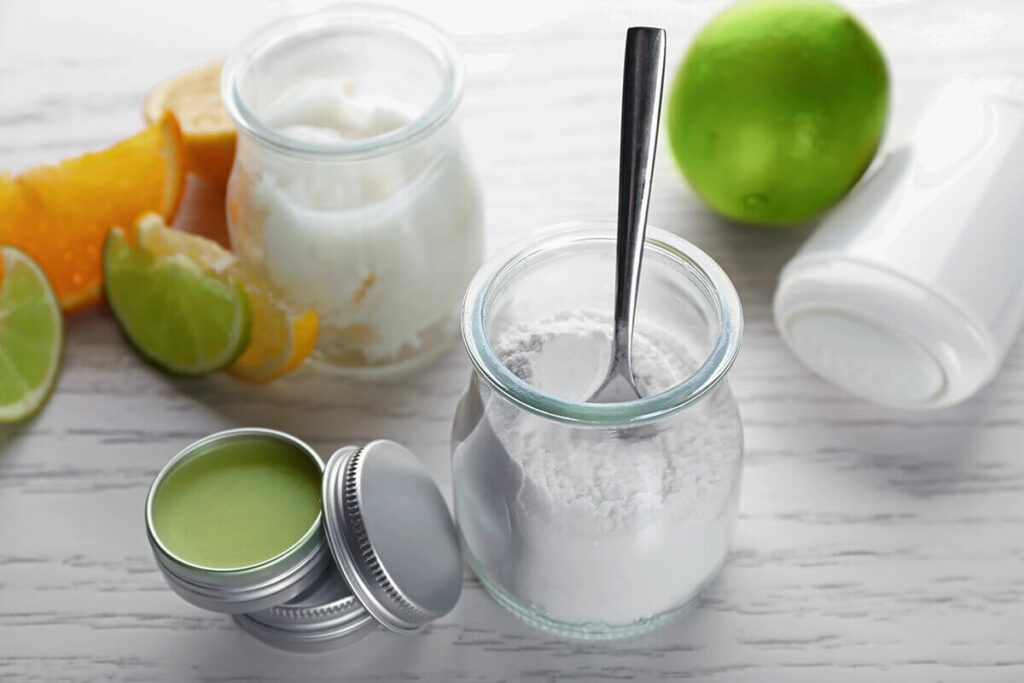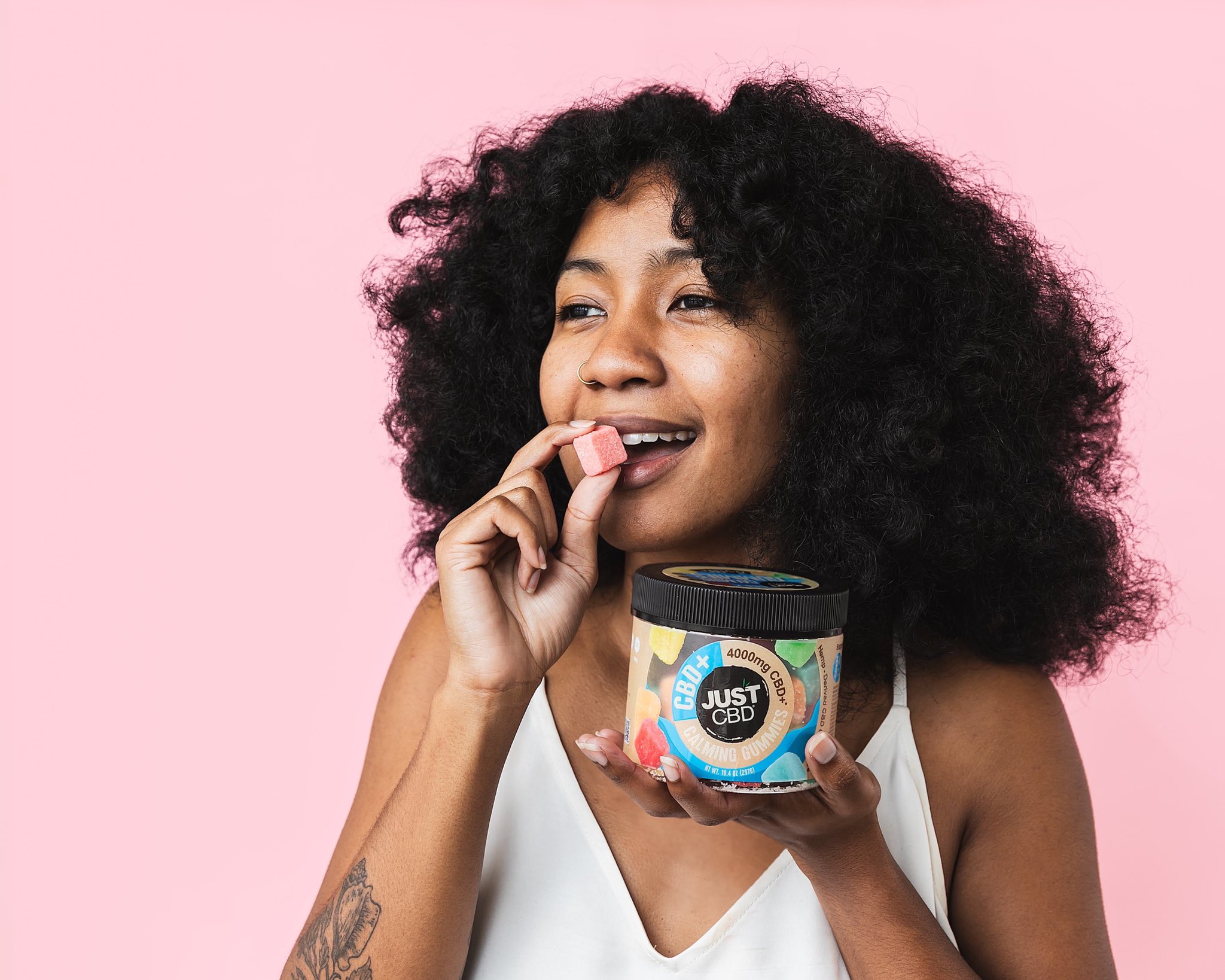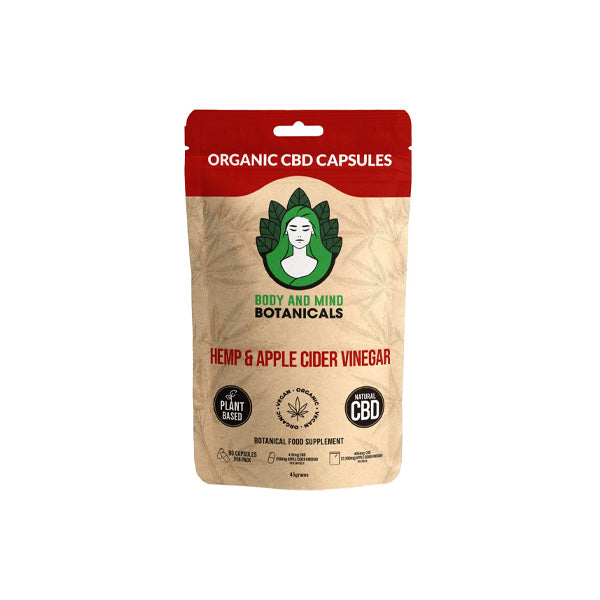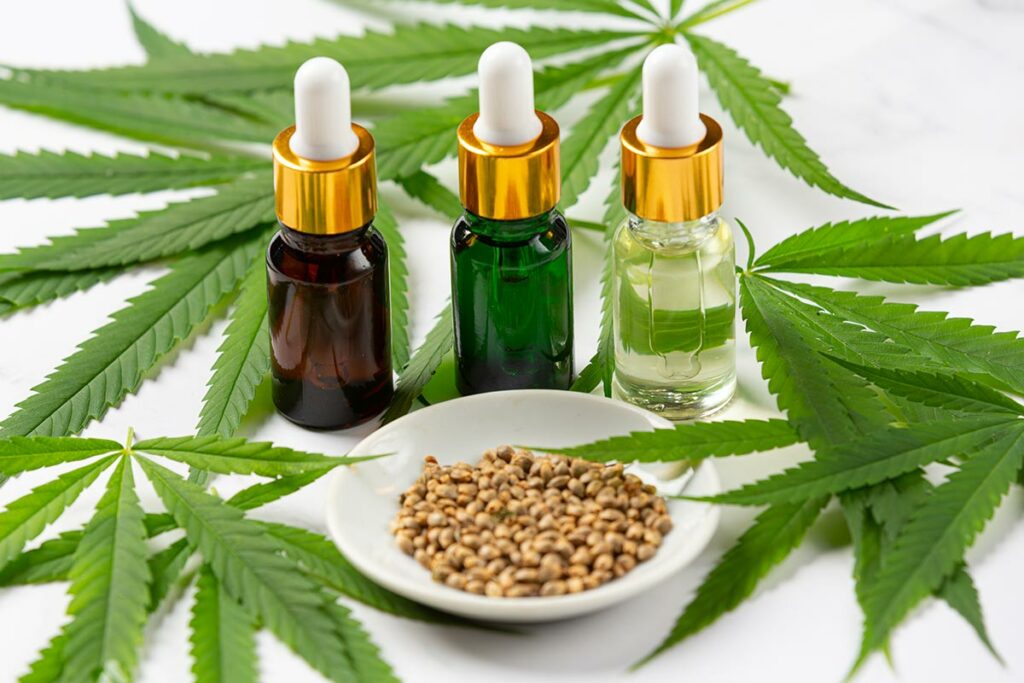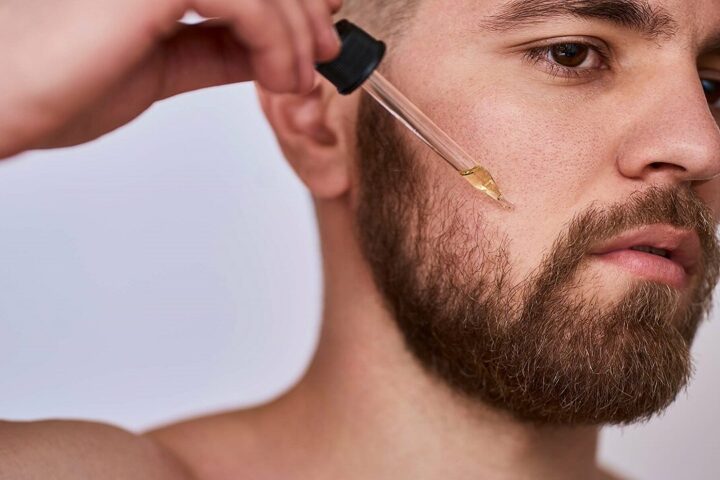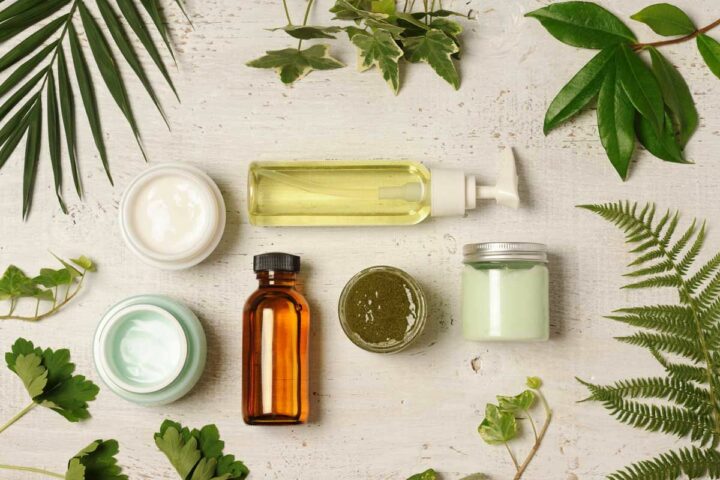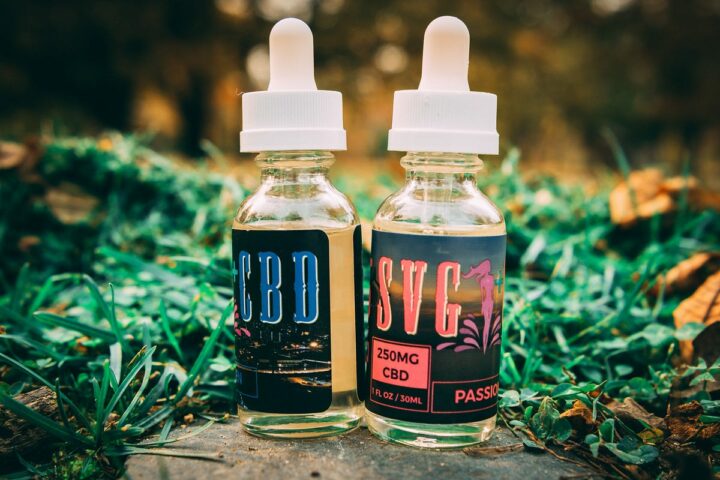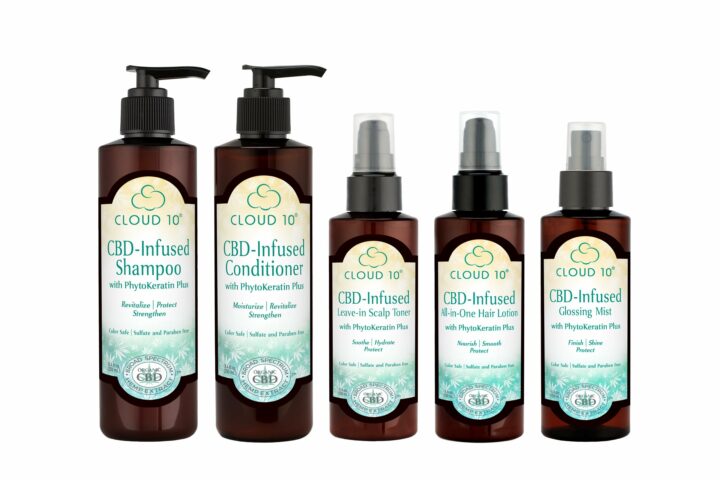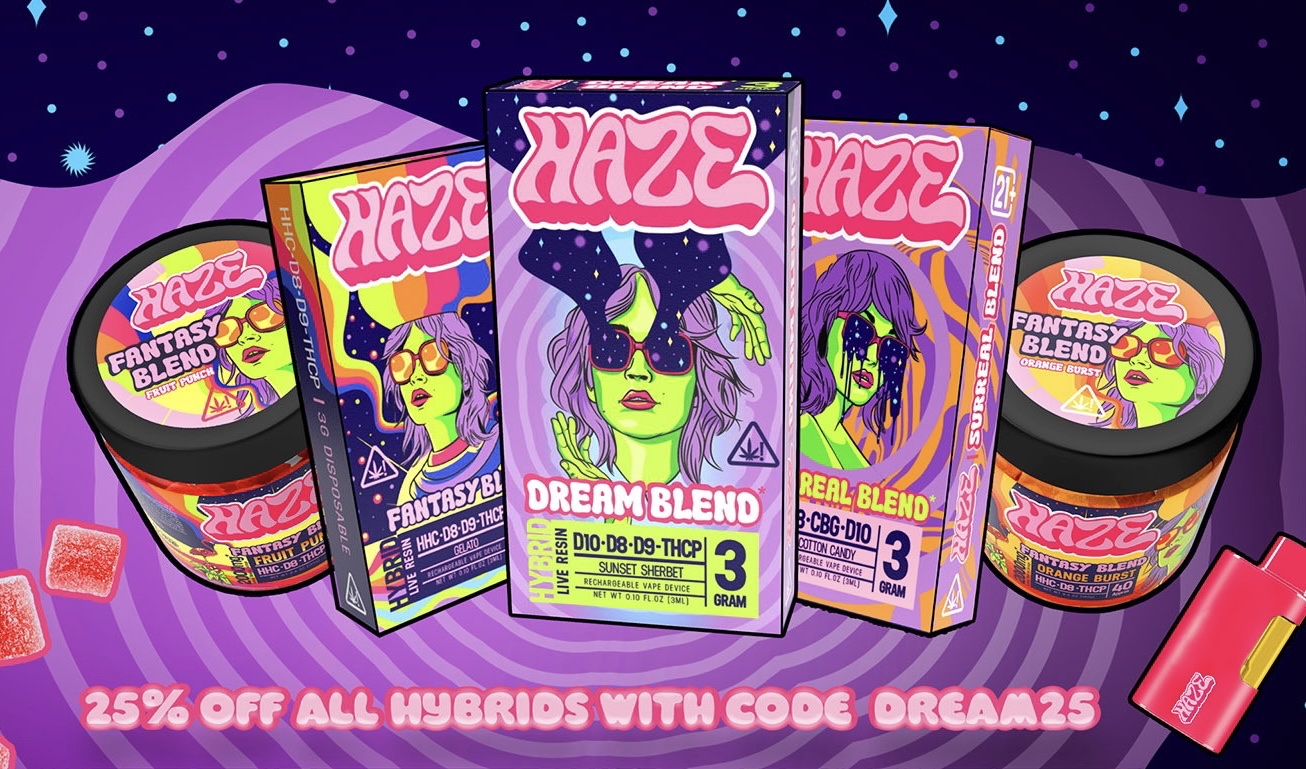CBD Deodorant
What is CBD Deodorant
CBD deodorant is a type of deodorant that contains cannabidiol (CBD), a compound derived from the cannabis plant. Unlike traditional deodorants that are formulated with aluminum and other chemicals to mask body odor, CBD deodorant works to neutralize odor-causing bacteria while also offering potential health benefits.
How Does CBD Deodorant Work?
CBD deodorant works by neutralizing odor-causing bacteria on the skin. When applied to the underarms, CBD deodorant can help prevent body odor while also offering potential anti-inflammatory and pain-relieving benefits.
Benefits of CBD Deodorant
CBD deodorant offers potential benefits beyond odor control. CBD has anti-inflammatory and analgesic properties, which may help soothe irritated skin and reduce pain and inflammation. CBD deodorant may also help regulate the production of sebum, the oily substance that can cause acne and other skin conditions.
How to Use CBD Deodorant
To use CBD deodorant, apply a thin layer to clean, dry underarms. Allow the deodorant to dry completely before getting dressed. Reapply as needed throughout the day to maintain odor control.
Choosing the Right CBD Deodorant
When choosing a CBD deodorant, it is important to look for a product that is formulated with high-quality, organic CBD. It is also important to look for a deodorant that is free from harmful chemicals such as aluminum, parabens, and synthetic fragrances.
Potential Side Effects
While CBD deodorant is generally considered safe, some individuals may experience side effects such as skin irritation or allergic reactions. It is important to test the product on a small area of skin before using it regularly.
In conclusion,
CBD deodorant is a natural and potentially effective alternative to traditional deodorants that offers the added potential health benefits of CBD. When choosing a CBD deodorant, it is important to look for high-quality, organic CBD and to avoid harmful chemicals. While CBD deodorant is generally considered safe, individuals should test the product on a small area of skin before using it regularly.
How to use CBD Deodorant
CBD deodorant is a unique product that offers potential health benefits while helping to control body odor. Here is a comprehensive guide on how to use CBD deodorant effectively.
Choose the Right CBD Deodorant
Before using CBD deodorant, it is important to choose a product that is formulated with high-quality, organic CBD and free from harmful chemicals such as aluminum, parabens, and synthetic fragrances. It is also important to choose a deodorant that matches your skin type, as some CBD deodorants may be more suitable for sensitive skin.
Apply to Clean, Dry Skin
To use CBD deodorant, start by washing your underarms with soap and water and drying them thoroughly. Apply a thin layer of CBD deodorant to each underarm, making sure to cover the entire area. Be sure to allow the deodorant to dry completely before putting on clothing.
Reapply as Needed
CBD deodorant may need to be reapplied throughout the day, depending on your level of physical activity and the intensity of your body odor. If you notice that your underarms are becoming sweaty or smelly, reapply a thin layer of CBD deodorant to each underarm as needed.
Store Properly
To ensure that your CBD deodorant remains effective, it is important to store it properly. Keep your deodorant in a cool, dry place away from direct sunlight and moisture. Avoid storing your deodorant in a hot car or other warm environment, as this can cause the product to melt or lose effectiveness.
Potential Side Effects
While CBD deodorant is generally considered safe, some individuals may experience side effects such as skin irritation or allergic reactions. If you notice any redness, itching, or swelling after using CBD deodorant, stop using the product and consult with a healthcare provider.
In conclusion,
using CBD deodorant is a simple and effective way to control body odor while potentially reaping the health benefits of CBD. To use CBD deodorant effectively, choose a high-quality, organic product, apply it to clean, dry skin, and reapply as needed throughout the day. Be sure to store your deodorant properly and watch for potential side effects.
CBD Deodorant Dosing
CBD deodorant is a unique product that contains cannabidiol (CBD), a compound derived from the cannabis plant. Unlike traditional deodorants that are formulated with aluminum and other chemicals to mask body odor, CBD deodorant works to neutralize odor-causing bacteria while also offering potential health benefits. Here is a comprehensive guide on CBD deodorant dosing.
Recommended Dosage
There is no recommended dosage for CBD deodorant, as it is not ingested like other CBD products such as oils or edibles. Instead, CBD deodorant is applied topically to the skin. The amount of CBD in a typical deodorant stick can vary, but it is usually around 25-50mg per stick.
Start Low and Go Slow
If you are new to using CBD deodorant or have never used a CBD product before, it is important to start with a low dose and gradually increase it as needed. Begin by using a small amount of deodorant and monitor how your body responds. If you do not notice any significant effects, you can gradually increase the amount of deodorant you use.
Listen to Your Body
It is important to listen to your body when using CBD deodorant. If you notice any negative side effects such as skin irritation or allergic reactions, stop using the product immediately and consult with a healthcare provider. If you have any underlying health conditions or are taking medication, it is important to speak with your healthcare provider before using CBD deodorant.
Consistency is Key
Consistency is key when using CBD deodorant. It may take several days or weeks of regular use to notice any significant benefits. Be sure to apply the deodorant daily and reapply as needed throughout the day to maintain odor control.
In conclusion,
there is no recommended dosage for CBD deodorant, as it is not ingested like other CBD products. It is important to start with a low dose and gradually increase it as needed, listening to your body for any negative side effects. Consistency is key when using CBD deodorant, and it may take several days or weeks of regular use to notice any significant benefits. If you have any underlying health conditions or are taking medication, be sure to consult with your healthcare provider before using CBD deodorant.
Benefits of CBD Deodorant
CBD deodorant is a unique product that offers potential health benefits while helping to control body odor. Here is a comprehensive guide on the benefits of CBD deodorant.
Odor Control
The primary benefit of CBD deodorant is its ability to control body odor. Traditional deodorants work by masking odors with synthetic fragrances and antiperspirants, which can be harmful to the body. CBD deodorant, on the other hand, works to neutralize odor-causing bacteria without the use of harmful chemicals.
Potential Anti-inflammatory Properties
CBD has been shown to have potential anti-inflammatory properties, which may help to soothe irritated skin and reduce inflammation in the underarm area. This can be especially beneficial for individuals with sensitive skin or those who experience skin irritation from traditional deodorants.
Potential Antibacterial Properties
CBD has also been shown to have potential antibacterial properties, which may help to prevent the growth of odor-causing bacteria in the underarm area. This can help to keep the underarms fresh and clean throughout the day.
Potential Pain Relief
CBD has been shown to have potential pain-relieving properties, which may help to alleviate underarm pain or discomfort caused by razor burn, ingrown hairs, or other skin irritations.
Potential Relaxation Benefits
CBD has also been shown to have potential relaxation benefits, which may help to reduce stress and promote a sense of calmness. This can be especially beneficial for individuals who experience stress-related sweating or anxiety-related body odor.
In conclusion,
CBD deodorant offers a range of potential health benefits, including odor control, anti-inflammatory properties, antibacterial properties, pain relief, and relaxation benefits. CBD deodorant is a safe and natural alternative to traditional deodorants that may contain harmful chemicals. Be sure to choose a high-quality, organic product and start with a low dose to see if it is right for you.
Legality of CBD in the UK
Cannabidiol, or CBD, is a non-psychoactive compound derived from the cannabis plant that has gained popularity in recent years for its potential health benefits. The legality of CBD in the UK can be a bit confusing, but here is a comprehensive guide to help clear things up.
Legal Status
CBD is legal in the UK, as long as it meets certain requirements. The UK government classifies CBD as a food supplement, as long as it contains less than 0.2% THC (tetrahydrocannabinol), the psychoactive compound found in cannabis. CBD products that contain more than 0.2% THC are considered illegal under UK law.
Prescription Medications
CBD can also be prescribed as a medication in the UK. In 2018, the UK government legalized the use of CBD as a prescription medication for certain conditions, such as epilepsy. These medications are subject to strict regulations and can only be prescribed by a healthcare professional.
Marketing and Labeling Regulations
CBD products that are sold as food supplements in the UK must comply with strict marketing and labeling regulations. These regulations are designed to protect consumers and ensure that products are accurately labeled and marketed. CBD products must include a list of ingredients, instructions for use, and any potential side effects. They must also be free from contaminants and meet certain quality standards.
Importing and Exporting
It is legal to import and export CBD products in the UK, as long as they meet certain requirements. CBD products must contain less than 0.2% THC and comply with UK marketing and labeling regulations. It is important to note that importing and exporting CBD products can be subject to customs and tax regulations.
Driving
It is illegal to drive under the influence of any substance, including CBD. It is important to be aware of how CBD affects your body and to avoid driving if you feel impaired.
In conclusion,
CBD is legal in the UK as long as it meets certain requirements. CBD products must contain less than 0.2% THC and comply with UK marketing and labeling regulations. CBD can also be prescribed as a medication for certain conditions. It is important to be aware of the legal status of CBD and to choose high-quality, reputable products. If you have any questions or concerns about the legality of CBD in the UK, consult with a legal or healthcare professional.
FAQs-CBD Deodorant
What does CBD in deodorant do?
CBD in deodorant offers potential benefits due to its anti-inflammatory and antibacterial properties. When applied topically, CBD may help reduce inflammation and soothe skin irritations, such as razor burns or underarm sensitivity. Additionally, CBD’s antibacterial properties can assist in controlling odor-causing bacteria, thus potentially providing a natural deodorizing effect. However, it’s important to note that more research is needed to fully understand the specific effects and efficacy of CBD in deodorant formulations.
What is the healthiest deodorant to use UK?
Choosing the healthiest deodorant in the UK involves looking for options that prioritize natural and non-toxic ingredients. Some popular choices include deodorants that are free from aluminum salts, parabens, and artificial fragrances. Natural deodorants made with ingredients like baking soda, coconut oil, and essential oils can be considered healthier alternatives. It is also important to consider individual preferences and skin sensitivities when selecting a deodorant. Reading labels and opting for products labeled as organic, vegan, or cruelty-free can further assist in finding a healthier deodorant option in the UK.
How do you make CBD deodorant?
To make CBD deodorant, you will need a few key ingredients. Start by melting 1/4 cup of shea butter and 2 tablespoons of coconut oil in a double boiler. Once melted, remove from heat and add 2 tablespoons of beeswax pellets, stirring until fully melted. Next, mix in 1/4 cup of arrowroot powder or cornstarch and 2 tablespoons of baking soda until well combined. Add 20-30 drops of your preferred CBD oil or isolate, and mix thoroughly. Lastly, pour the mixture into a clean, empty deodorant container or jar and allow it to cool and solidify before using. It’s important to note that CBD dosage and concentration may vary, so adjust accordingly to achieve the desired potency.
What is the CBD?
CBD, short for cannabidiol, is a naturally occurring compound found in the cannabis plant. It is one of the many cannabinoids present in cannabis, alongside THC (tetrahydrocannabinol). However, unlike THC, CBD does not produce psychoactive effects or a feeling of being “high.” CBD has gained significant attention due to its potential therapeutic properties. It interacts with the body’s endocannabinoid system, which plays a role in regulating various physiological processes. CBD is commonly used for its potential benefits such as promoting relaxation, reducing anxiety, relieving pain and inflammation, improving sleep, and supporting overall well-being. It is available in various forms, including oils, edibles, topicals, and capsules.
Why is CBD illegal in UK?
CBD is not illegal in the UK, provided it meets specific regulations. In the UK, CBD products must adhere to strict guidelines set by the Food Standards Agency (FSA) and the Medicines and Healthcare products Regulatory Agency (MHRA). To be legally sold, CBD products must contain less than 0.2% THC (the psychoactive compound in cannabis) and be derived from an EU-approved strain of hemp. However, the sale and possession of CBD products for medicinal purposes require a license from the MHRA. It’s essential to note that CBD products marketed for medicinal claims or containing higher THC levels may be subject to stricter regulations and require a prescription. Therefore, while CBD itself is not illegal in the UK, it is essential to ensure compliance with the specific regulations in place.
Is CBD Legal in England?
CBD is legal in England, as long as it meets certain regulations. In the UK, CBD products must contain less than 0.2% THC (tetrahydrocannabinol), the psychoactive compound found in cannabis, to be considered legal. Additionally, the CBD must be derived from an EU-approved strain of hemp. It is important to note that CBD products marketed for medicinal purposes or with higher THC levels may be subject to stricter regulations and require a prescription. However, for general CBD products that meet the specified criteria, they are legal to buy, sell, and possess in England.
Will CBD show on drug test UK?
CBD itself is unlikely to show up on a drug test in the UK. Most standard drug tests in the UK focus on detecting THC (tetrahydrocannabinol), the psychoactive compound found in cannabis, rather than CBD. However, it’s important to note that some CBD products may contain trace amounts of THC, which could potentially result in a positive drug test. To minimize the risk, it is advisable to choose CBD products that are labeled as THC-free or undergo third-party testing to ensure THC levels are below the detectable limit. Additionally, it’s essential to consider the specific type of drug test being conducted and the sensitivity of the test. If you have concerns about drug testing, it may be best to consult with your employer or the organization conducting the test for further guidance.
Is CBD a drug?
CBD, short for cannabidiol, is a compound derived from the cannabis plant. While it is derived from cannabis, CBD itself is not considered a drug in the traditional sense. It does not produce the psychoactive effects commonly associated with cannabis use. CBD is not intoxicating and does not create a feeling of being “high.” Instead, CBD is often classified as a dietary supplement or natural remedy due to its potential therapeutic properties. It interacts with the body’s endocannabinoid system, which is involved in regulating various physiological processes. CBD is commonly used for its potential benefits, such as promoting relaxation, reducing anxiety, relieving pain and inflammation, improving sleep, and supporting overall well-being.
How much does CBD cost in UK?
The cost of CBD products in the UK can vary depending on various factors such as the brand, product type, CBD concentration, and quality. Generally, CBD prices in the UK range from around £20 to £100 or more for products like CBD oils, capsules, edibles, and topicals. Higher-quality CBD products and those with higher CBD concentrations may tend to be more expensive. It’s important to consider factors like product potency, source of CBD, third-party testing, and customer reviews when comparing prices to ensure you are getting a reliable and effective product. Additionally, it’s worth noting that prices can fluctuate due to market demand and availability, so it’s always advisable to research and compare prices from different reputable sellers before making a purchase.
What drugs should not be taken with CBD UK?
When considering CBD use in the UK, it is important to be aware of potential interactions with certain medications. CBD can interact with the liver enzymes responsible for metabolizing various drugs, which can affect their breakdown and lead to altered drug concentrations in the body. It is recommended to exercise caution and consult with a healthcare professional before combining CBD with any prescription or over-the-counter medications. Specifically, medications that come with a “grapefruit warning” or those metabolized by the CYP450 enzyme system may have an increased risk of interaction with CBD. It is advisable to seek personalized medical advice to determine if there are any potential concerns or adjustments that need to be made when using CBD alongside specific medications.
What does CBD oil do to your brain?
CBD oil interacts with various receptors and neurotransmitters in the brain, potentially influencing several processes. It is believed to affect serotonin receptors, which can contribute to its potential anti-anxiety and mood-regulating effects. CBD may also interact with the endocannabinoid system, which plays a role in regulating various physiological functions, including pain perception, inflammation, and sleep. Additionally, CBD has shown promise in reducing seizures and providing neuroprotective effects in certain conditions. While research is still ongoing, CBD oil’s impact on the brain suggests potential benefits for anxiety, depression, epilepsy, and neurodegenerative disorders. However, it is important to note that individual responses may vary, and further scientific studies are needed to fully understand CBD’s effects on the brain.
Does CBD oil help depression?
CBD oil has shown promise in potentially helping with depression, although more research is needed to establish its efficacy. Some studies suggest that CBD may have antidepressant-like effects by interacting with serotonin receptors in the brain, which are involved in mood regulation. CBD’s potential anti-anxiety properties may also contribute to its potential benefits for depression. However, it’s important to note that individual responses to CBD can vary, and it should not be considered a substitute for professional medical advice or prescribed treatments. If you are considering using CBD oil for depression, it is advisable to consult with a healthcare professional to discuss potential risks, benefits, and appropriate dosage.
What is the downside of CBD oil?
While CBD oil is generally considered safe, there are a few potential downsides to be aware of. Firstly, CBD can interact with certain medications, so it’s important to consult with a healthcare professional if you are taking any prescription drugs. Additionally, some people may experience mild side effects such as dry mouth, drowsiness, changes in appetite, or diarrhea when using CBD oil. It’s worth noting that these side effects are generally rare and mild, but it’s important to start with a low dosage and gradually increase if needed. Furthermore, the quality and purity of CBD products can vary, so it’s crucial to choose reputable brands that undergo third-party testing for potency and contaminants. Lastly, while CBD has potential therapeutic properties, more research is needed to fully understand its long-term effects and potential interactions.
Can I take CBD instead of antidepressants?
It is not recommended to replace prescribed antidepressants with CBD without consulting a healthcare professional. While CBD has shown potential in preliminary studies for its antidepressant-like effects, it should not be considered a substitute for prescribed medications. Antidepressants are specifically designed to address the chemical imbalances associated with depression and have undergone extensive research and testing. CBD’s effectiveness for treating depression is still being investigated, and individual responses may vary. If you are considering using CBD as a complement to your treatment or exploring alternative options, it is essential to discuss it with a healthcare provider who can provide personalized guidance based on your specific situation. They can help you make informed decisions about potential risks, benefits, and appropriate dosage adjustments.
Does CBD act like an antidepressant?
CBD has shown potential in some studies for its antidepressant-like effects, although more research is needed to fully understand its mechanisms and efficacy. CBD interacts with various receptors in the brain, including serotonin receptors, which play a role in regulating mood. By modulating serotonin levels and other neurotransmitters, CBD may have the potential to alleviate symptoms of depression. However, it’s important to note that individual responses to CBD can vary, and it should not be considered a standalone treatment for depression. Consulting with a healthcare professional is advisable to discuss potential benefits, risks, and appropriate usage of CBD as part of a comprehensive treatment plan for depression.
- Apple Gelato Weed Strain Information - May 2, 2024
- Sweet Tart Weed Strain Information - April 27, 2024
- Expert Guide to White Fire OG (WiFi OG) Weed Strain Information - April 20, 2024
